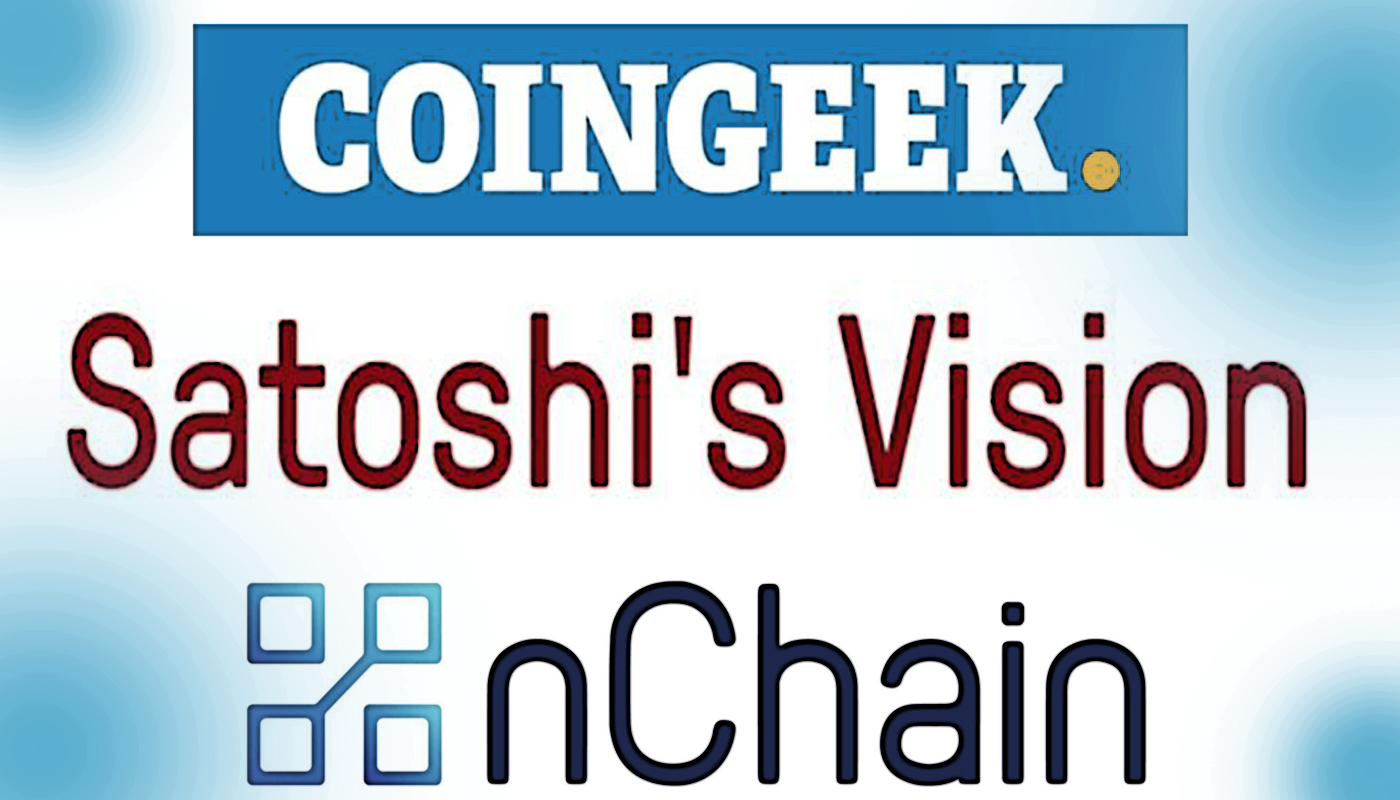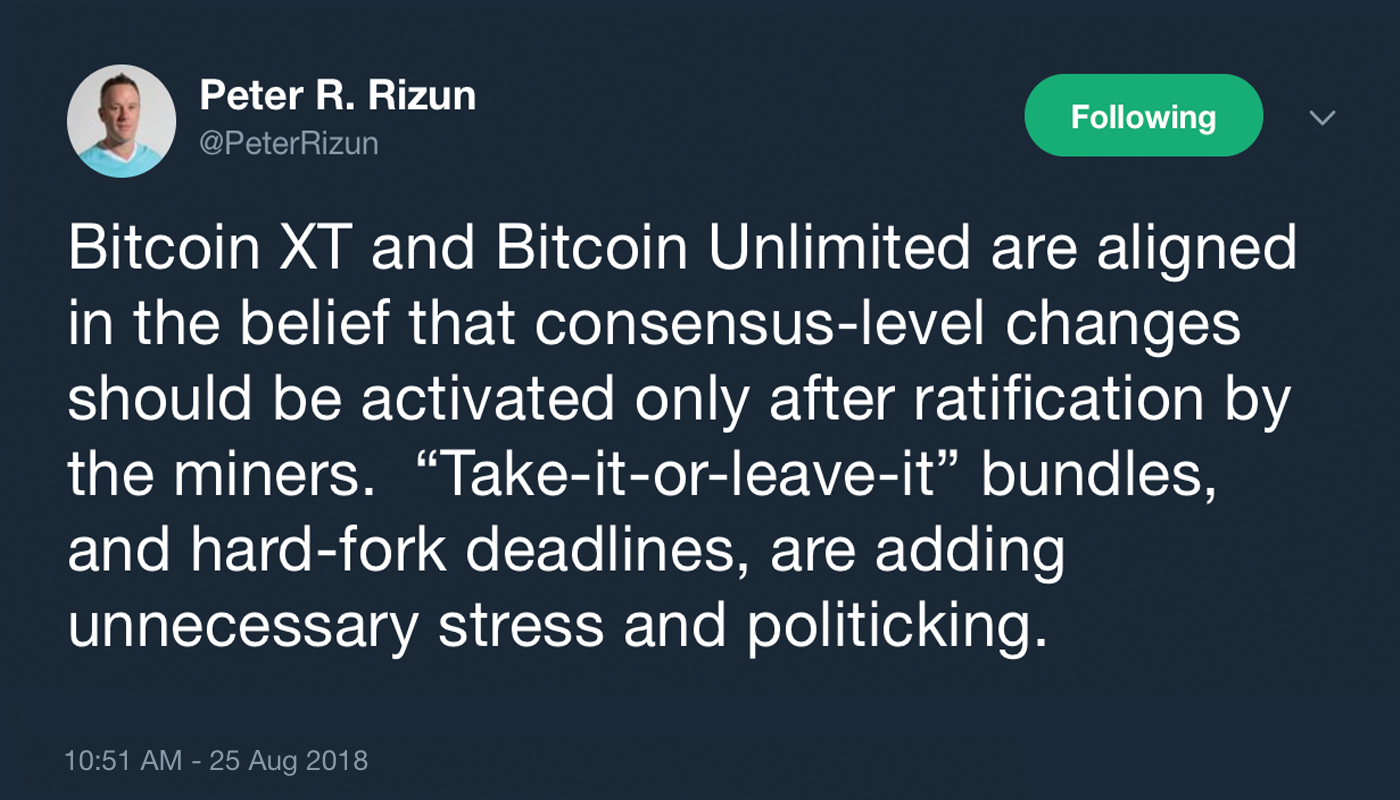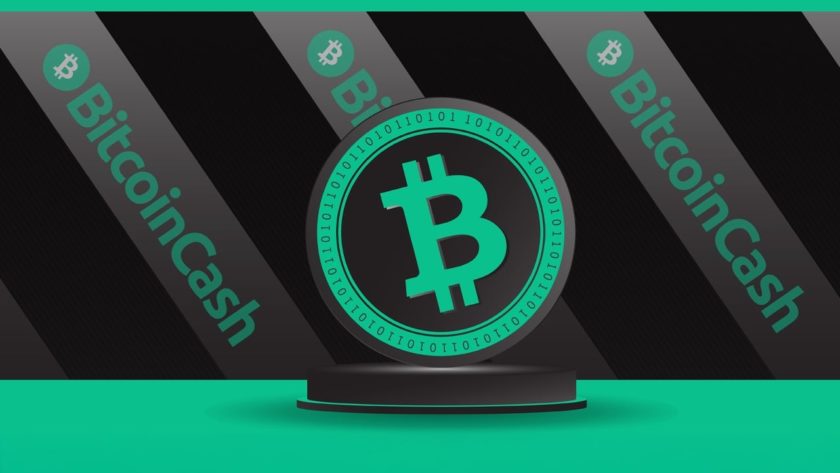If you are a Bitcoin Cash (BCH) proponent you’ve definitely been hearing a lot about the upcoming hard fork scheduled for November 15. Most people have been discussing the conflict between the Bitcoin ABC developers and Nchain’s recently announced Bitcoin SV project. This week Nchain’s Steve Shadders shared a post concerning the Bitcoin SV client that’s due to publish next month. Essentially Shadders explains the Nchain team is not forcing anyone to 128MB blocks; rather they are encouraging miners to configure block size limits themselves.
Also read: Fivebucks.com: Meet the Freelancer’s Marketplace Powered by Bitcoin Cash
Two Visions Testing Communications
Lots of people within the Bitcoin Cash community have been debating the recent clash between Nchain and the Bitcoin ABC development team. Over the last few weeks, there’s been a lot going on with this developing story, and more so after Bitcoin ABC published the 0.18 code last week which includes two feature consensus changes — a new opcode called OP_CHECKDATASIG (CDS) will be added and the implementation of canonical transaction ordering (CTOR).
However, Nchain’s project will be another full node client, but the developers won’t be including CDS and CTOR. In contrast to Bitcoin ABC’s code, the Bitcoin SV client will feature the restoration of Satoshi opcodes OP_MUL, OP_LSHIFT, OP_RSHIFT, OP_INVERT, the removal of the 201 opcode script limit, and a block size increase to 128MB. With these differences, if miners choose to operate different clients there could be issues. In preparation for such an event, the statistical data website Coin Dance added a BCH node compatibility page to the portal.
Nchain’s Safe Path to Scaling
With all the debates happening online, Nchain has addressed the public with a blog post called ‘Bitcoin SV and big blocks – A safe path to scaling.’ Nchain’s Steve Shadders explains in the post the Bitcoin SV client is not forcing anyone to 128MB blocks, and they are simply encouraging miners to configure block size limits themselves. Shadders then goes on to define ‘soft caps vs hard caps’ which represent the maximum block size a miner will mine (soft cap) and the maximum size a miner will accept from another miner (hard cap). Shadders details allowing miners to choose the block size allows them to essentially govern the protocol.

“The power of miner’s choice — This is precisely what Coingeek and other miners seek to change — Both the soft and hard caps are configuration items that enable miners to exercise the power of governance endowed upon them by the bitcoin system in proportion to their investment,” Shadders explains.
Bitcoin SV supports this and whilst we have no choice but to set default values (you can’t have a configurable setting without them) we do not endorse those values as the best choice and we encourage miners to adjust them as they see fit.
Shadders also emphasizes that there’s an incorrect belief that Bitcoin SV has the intention of forcing users to 128MB blocks. In contrast to this opinion, Shadders says they are simply placing “the configuration settings to a much more prominent place.”
1 CPU = 1 Vote
Coingeek has also responded to the media reports that say the BCH protocol is preparing a “schism or split” this November. In reality, Coingeek states BCH is simply facing another “consensus-seeking mechanism or election.”
“Unlike a national election for presidency, it is not 1 human = 1 vote. It is 1 CPU = 1 Vote — This means, it comes down to hash power — That alone is the consensus-seeking mechanism that was built into Bitcoin since day one and the consensus mechanism that was highlighted in Satoshi’s whitepaper,” explains Coingeek on August 27.
The battle here is over the same BCH blockchain. It is exceedingly unlikely that we will get a split coin in November, since both mining factions are fighting over the BCH ticker and existing eco-system — The hashpower is over one chain in true Nakamoto consensus — No team, is seeking to split into a different coin.
Additionally, Nchain’s chief scientist Craig Wright further discusses Bitcoin SV, uncapped blocks, and canonical transaction ordering (CTOR) further with Reina Nakamoto on August 26.
XT and BU Align

Lastly, this week news.Bitcoin.com reported on Bitcoin Unlimited’s (BU) plan to implement consensus changes from both organizations, allowing miners the ability to vote for the changesets with hashpower. On August 24 Bitcoin XT developer Tom Harding told his Twitter followers that XT would be aligned with BU and leave the consensus-level changes to miners.
“Bitcoin XT will implement BIP135 and collaborate with other implementations to allow direct activation of forking changes by a supermajority level of mining defined for that activation,” explains Harding.
With everything happening there’s been a lot of action lately with people heavily discussing these topics on social media, Reddit forums, and BCH chat rooms on Slack and Telegram. It’s safe to say this story is not over and news.Bitcoin.com will be there to detail it every step of the way.
If you missed some of the debate earlier, check out the previous articles below:
What do you think about this debate? Let us know what you think about this topic in the comment section below.
Images via Shutterstock, Bitcoin Client Logos, Twitter, and Jamie Redman.
At Bitcoin.com there’s a bunch of free helpful services. For instance, have you seen our Tools page? You can even look up the exchange rate for a transaction in the past. Or calculate the value of your current holdings. Or create a paper wallet. And much more.




